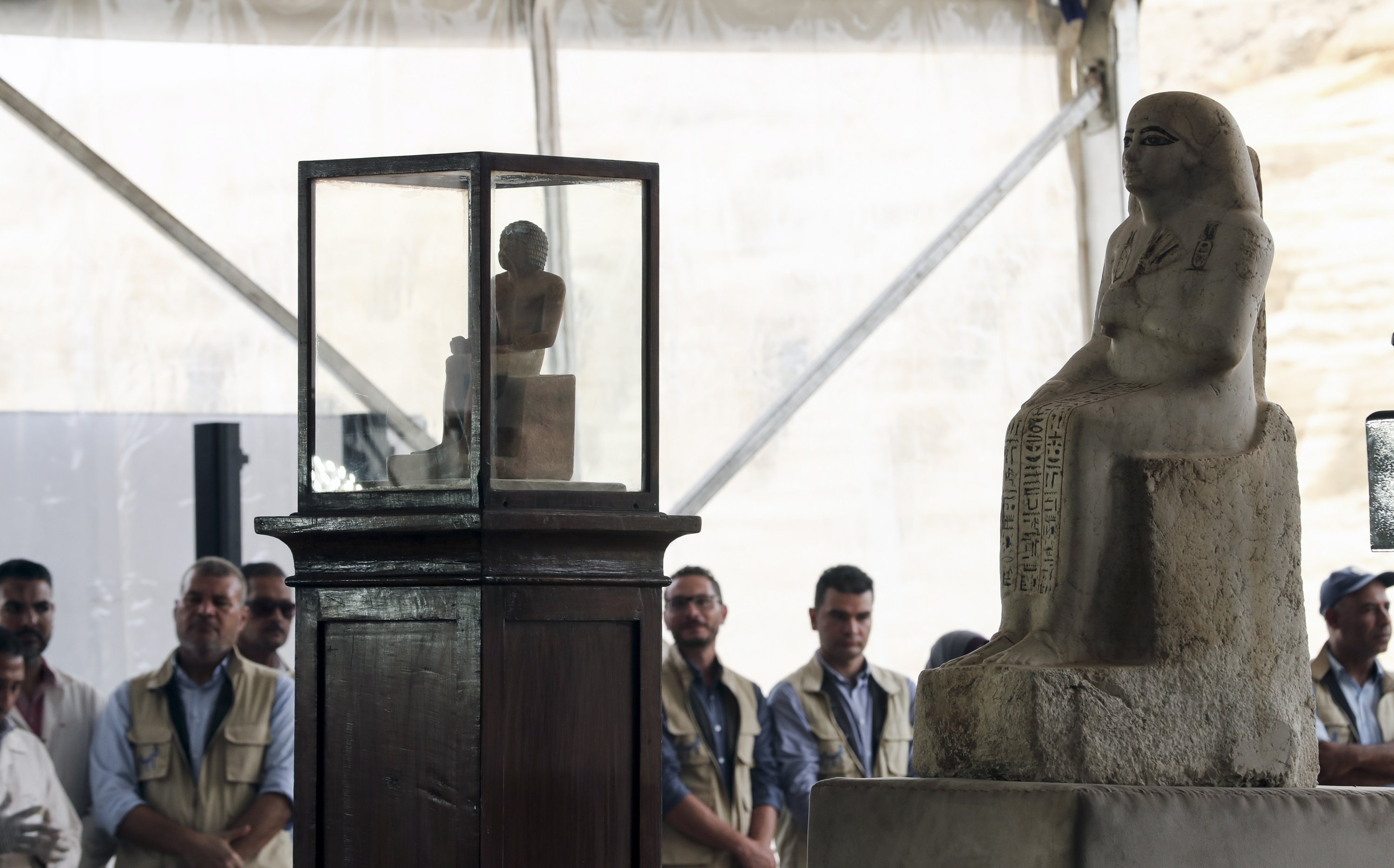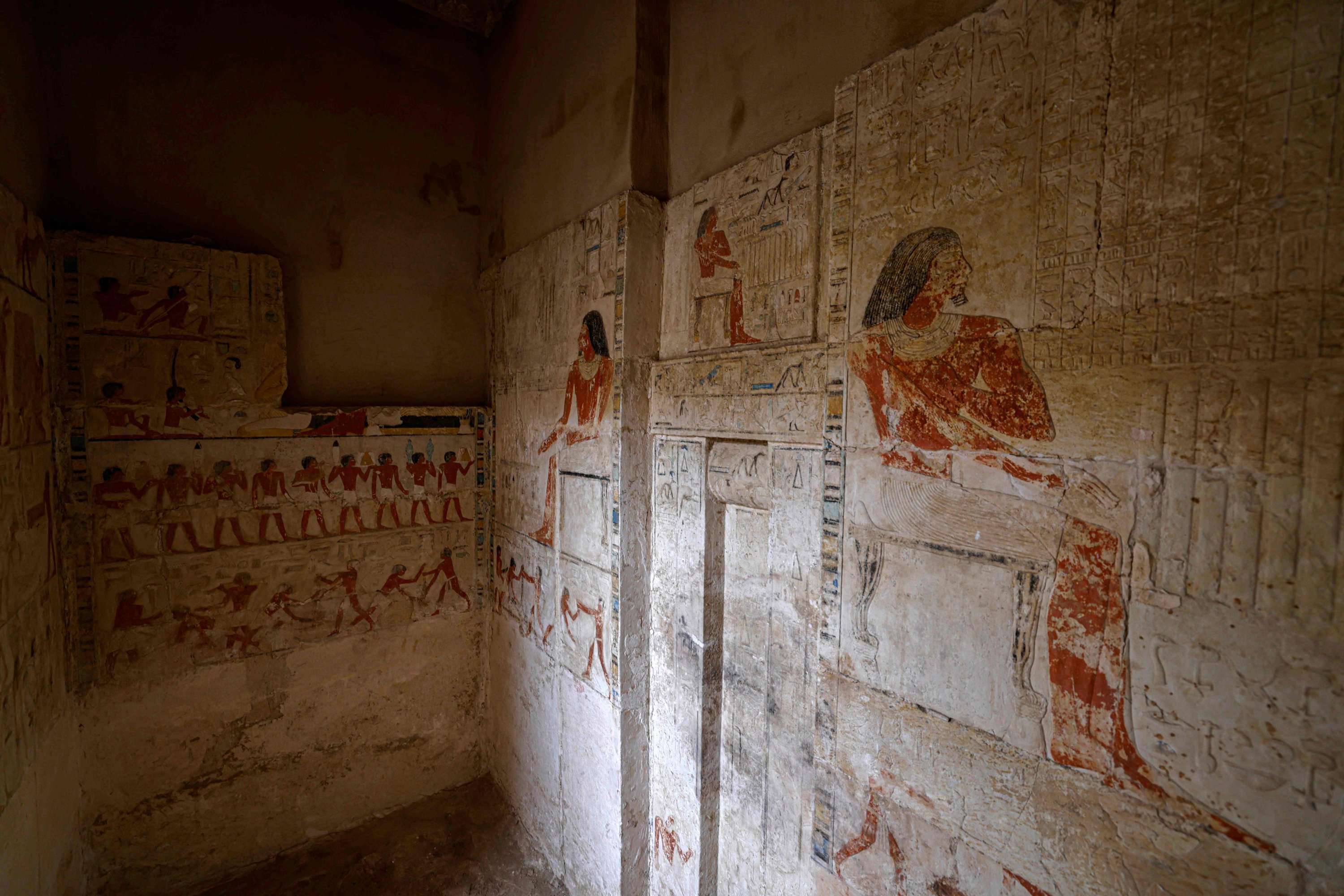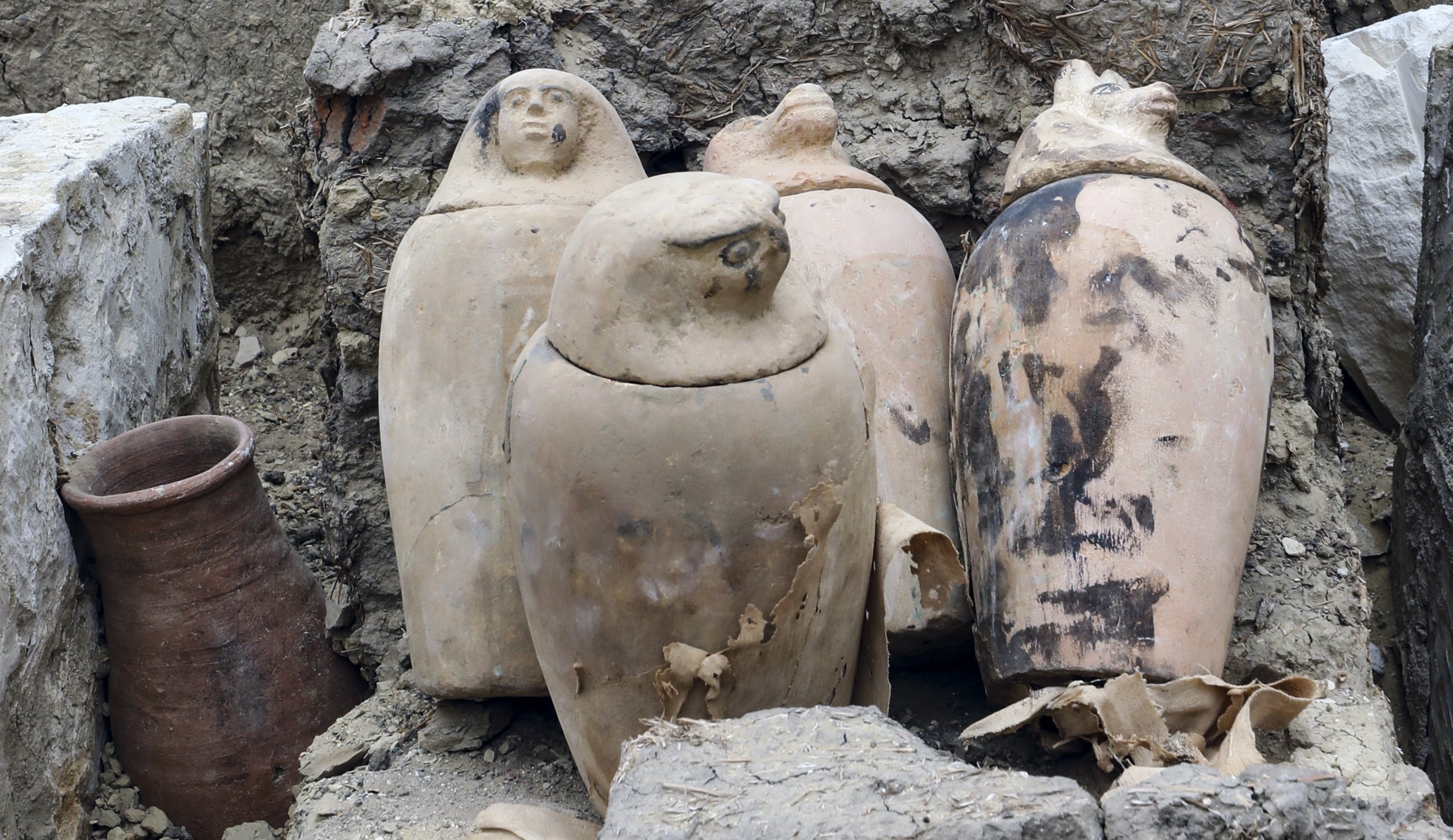© Turkuvaz Haberleşme ve Yayıncılık 2024
Egyptian authorities announced Saturday the discovery of human and animal mummification workshops, as well as two tombs, in the ancient burial ground of Saqqara.
These remarkable findings represent the latest in a series of discoveries aimed at revitalizing Egypt's crucial tourism industry while shedding new light on the intricate burial traditions of the ancient Egyptians.
Mostafa Waziri, the head of Egypt's Supreme Council of Antiquities, told reporters that the two large "embalming workshops" date back to the 30th dynasty (380-343 B.C.) and the Ptolemaic (305-30 B.C.) eras.

The discovery was made after a year-long excavation near the sanctuary of the goddess Bastet, home to the catacombs of mummified cats in Saqqara, some 30 kilometers (18.6 miles) south of Cairo.
It was the exact spot where hundreds of mummified animals and statues were uncovered in 2019.
"We found embalming workshops, one for humans and one for animals. We found all the tools they used (in mummification) in ancient times," Waziri said.
Both workshops featured stone beds, clay pots, ritual vessels, natron salt, which is one of the main ingredients for mummification, and linens, among other mummification instruments.

The Saqqara excavations also led to the unearthing of two small 4,400- and 3,400-year-old tombs nearby, belonging to two priests, Ne Hesut Ba of the Old Kingdom's fifth dynasty and Men Kheber of the late kingdom's 18th dynasty, respectively.
Inscriptions of cultivation, hunting, and other daily activities were found on the walls of Ne Hesut Ba's tomb, while "scenes showing the deceased in different positions" were engraved in Men Kheber's tomb, officials said.
Egypt has carried out extensive digging operations in Saqqara and other ancient locations in recent years, which resulted in a number of high-profile discoveries.

The country plans to inaugurate the Grand Egyptian Museum, a state-of-the-art facility near the Giza Pyramids on the outskirts of Cairo after construction is completed later this year.
Egypt hopes it can further lure back tourists after the industry started to rebound of late, having been battered by the aftermath of the COVID-19 pandemic and the conflict in Ukraine.
Tourism revenues climbed to $7.3 billion in the second half of 2022, a 25.7% increase compared with the same period a year earlier, according to recently released central bank data.
